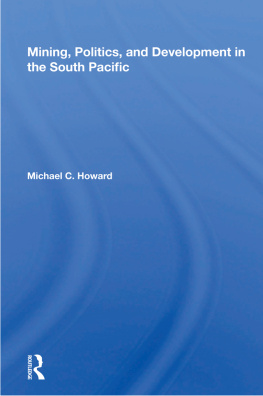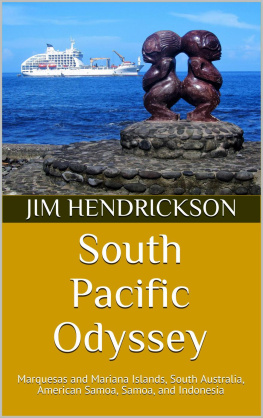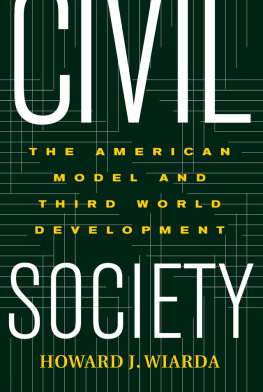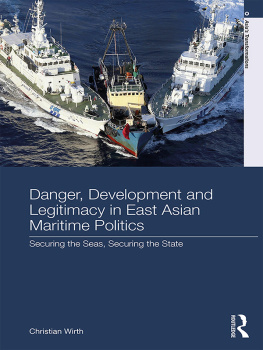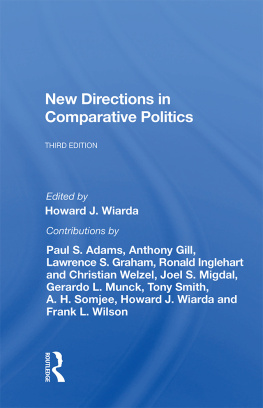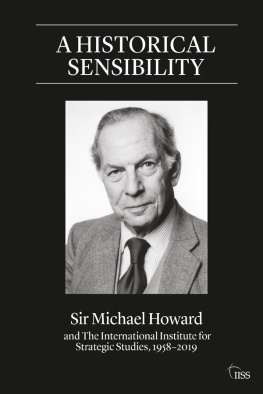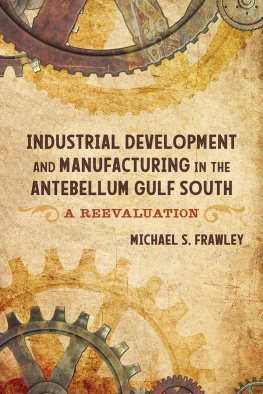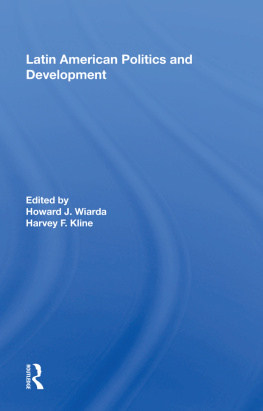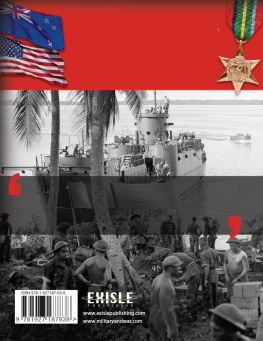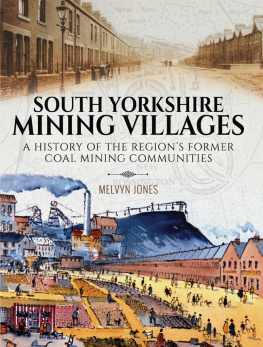Mining, Politics, and Development in the South Pacific
Mining, Politics, and Development in the South Pacific
Michael C. Howard
First published 1991 by Westview Press
Published 2018 by Routledge
52 Vanderbilt Avenue, New York, NY 10017
2 Park Square, Milton Park, Abingdon, Oxon OX14 4RN
Routledge is an imprint of the Taylor & Francis Group, an informa business
Copyright 1991 by Taylor & Francis
All rights reserved. No part of this book may be reprinted or reproduced or utilised in any form or by any electronic, mechanical, or other means, now known or hereafter invented, including photocopying and recording, or in any information storage or retrieval system, without permission in writing from the publishers.
Notice:
Product or corporate names may be trademarks or registered trademarks, and are used only for identification and explanation without intent to infringe.
Library of Congress Cataloging-in-Publication Data
Howard, Michael C.
Mining, politics, and development in the South Pacific / by
Michael C. Howard.
p. cm.
Includes bibliographical references and index.
ISBN 0-8133-8170-3
1. Mineral industriesOceania. 2. OceaniaEconomic conditions.
3. OceaniaPolitics and government. I. Title.
HD9506.O32H68 1991
338.2'099dc20 90-19448
CIP
ISBN 13: 978-0-367-01617-3 (hbk)
The genesis of the present work is to be found in several research projects in which mining emerged as an important consideration. The first of these was my Ph.D. research in the mid-1970s on Australian Aboriginal politics in Southwestern Australia. From it, I developed a general concern with the political debate surrounding mining on land claimed by Aboriginal people. One of the projects to spin off from my initial interest in Aboriginal issues was a study of the global activities of the American-based mining company AMAX and its relations with native peoples. My attention was drawn to AMAX while I was engaged in research in Western Australia in 1980. In August 1980 AMAX became involved in a confrontation over oil exploration with the Yungngona people at Noonkanbah. In 1981, while examining AMAX's activities elsewhere in the world, I came into contact with Ted Wheelwright of the Transnational Corporations Research Project at the University of Sydney, who encouraged me to present a paper on AMAX at the 1982 ANZAAS Conference to be held in Sydney.
Questions of indigenous rights and the activities of transnational corporations were prominent among my interests when I moved to Fiji to work at the University of the South Pacific in 1982. Once in Fiji I continued my research on transnational corporations, while also undertaking studies on labor relations and economic development in the South Pacific. Once again, mining was not the central focus of my research, but gradually it assumed greater prominence. In particular, a good deal of my work came to focus on primary resource development in fishing, forestry, and mining. In regard specifically to mining, I served for a period as an adviser to the Rabi Council of Leaders, the council representing those who had moved to Fiji from the phosphate island of Banaba (or Ocean Island) after the Second World War. I made several brief visits to Nauru, where I was able to become better acquainted with its phosphate industry at first hand. During visits to the Solomon Islands primarily to study industrial relations and later the fishing industry, I also conducted interviews relating to mining on Guadalcanal. Having been interested in the Fijian goldmining industry previously, between 1985 and 1987, prior to the 1987 national election, I became involved in the debate in Fiji concerning the activities of Emperor Gold Mine. Finally, while in Fiji, I became acquainted with the history of the mining industry in the South Pacific, especially in the course of writing The Political Economy of the South Pacific to 1945 (Townsville: Centre for Southeast Asian Studies, James Cook University, 1987) with Simione Durutalo.
Having produced a number of publications on the South Pacific for the Transnational Corporations Research Project, in 1985 Ted Wheelwright suggested that I prepare a comparative study of the impact of the mining industry on native peoples. Developments in Fiji delayed completion of the work until the latter part of 1987, while I was living in Australia. Published in 1988 as The Impact of the International Mining Industry on Native Peoples, the monograph included chapters on AMAX, Brazil, the Philippines and the South Pacific. Preliminary research on native peoples and primary resource development in the Philippines had been carried out in 1986 (further research was carried out in 1989).
The idea for the present book grew out of a desire to explore some of the issues concerning the South Pacific discussed in my comparative study more thoroughly and to bring the material up to date. Since my study for the Transnational Corporations Research Project a great deal has happened in relation to mining in the South Pacific. The most dramatic event undoubtedly is the uprising on Bougainville, but elsewhere in the region there have also been equally important developments. Thematically, I especially wished to look more carefully at the political dimension of mining and at the relationship of mining to national development.
Over the years a number of people have helped me to better understand the many issues surrounding the mining industry. In regard to the present work, I would like especially to thank 'Atu Bain, Simione Durutalo, Donna Winslow, Peter Larmour, Ted Wheelwright, Terence Wesley-Smith, Herb Thompson, and Hans Dagmar for their insights and assistance.
Michael C. Howard
Introduction
If asked about the primary resources of the South Pacific, most people would think of coconuts or fish, few would mention timber, much less minerals. Yet such resources are of vital importance to the economies of several of the small Pacific island states, and they are often the subject of very heated political controversy. Before the arrival of Europeans, mining and metallurgy were unknown to Pacific islanders. The discovery of gold in the South Pacific was left to European explorers during the sixteenth and early seventeenth centuries who found traces of alluvial gold on some of the islands for which they gave them names like the Islands of Solomon and the Island of Gold (New Guinea).
The South Pacific did not become another Mexico or Peru, and it was not until the last decades of the nineteenth century, when European colonial expansion in the region provided a new impetus to mineral exploration, that mining began on several of the islands. Gold was found in New Guinea and New Caledonia in the 1870s, and by the 1880s, nickel and chromite mining were important industries on New Caledonia. Guano was removed from many of the region's smaller and more isolated islands during the latter half of the nineteenth century, and around the turn-of-the-century the discovery of rich phosphate deposits led to the development of large-scale mining operations on Nauru, Banaba, Angaur, and Makatea.
The rising price of gold during the interwar years of the twentieth century promoted further exploration throughout the Melanesian area and resulted in the development of large gold mining operations in Papua New Guinea and Fiji. By the time the Second World War began, the mining industry was a major source of export earnings and government revenue for many colonies around the South Pacific. It was also an industry dominated by a handful of companies, companies that tended to be at least as powerful as the colonial governments: Socit le Nickel, Emperor Gold Mining Company, Bulolo G.D. Ltd., New Guinea Goldfields, and the British Phosphate Commissioners.


